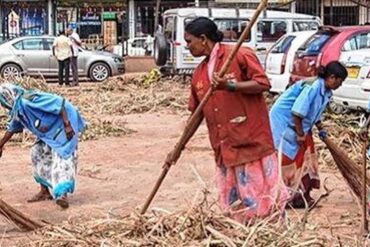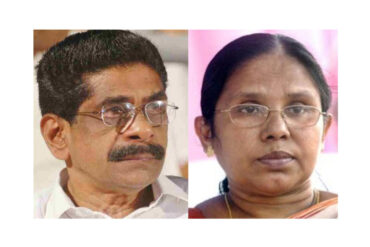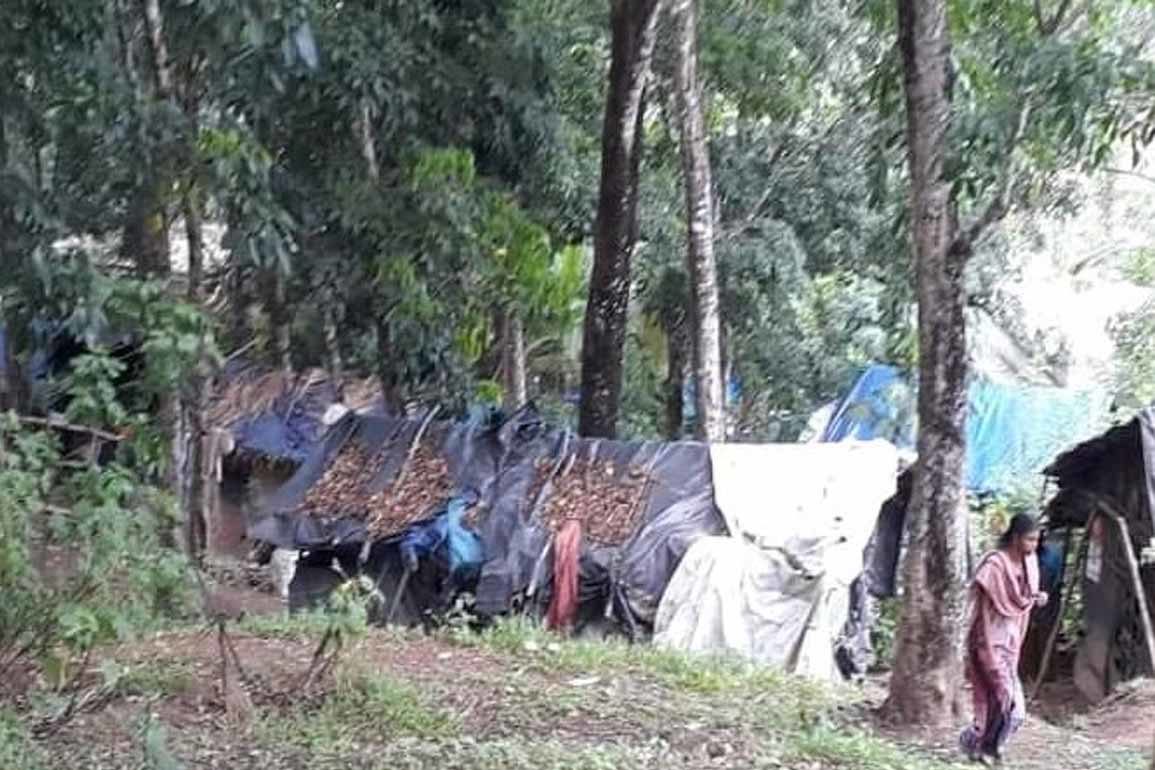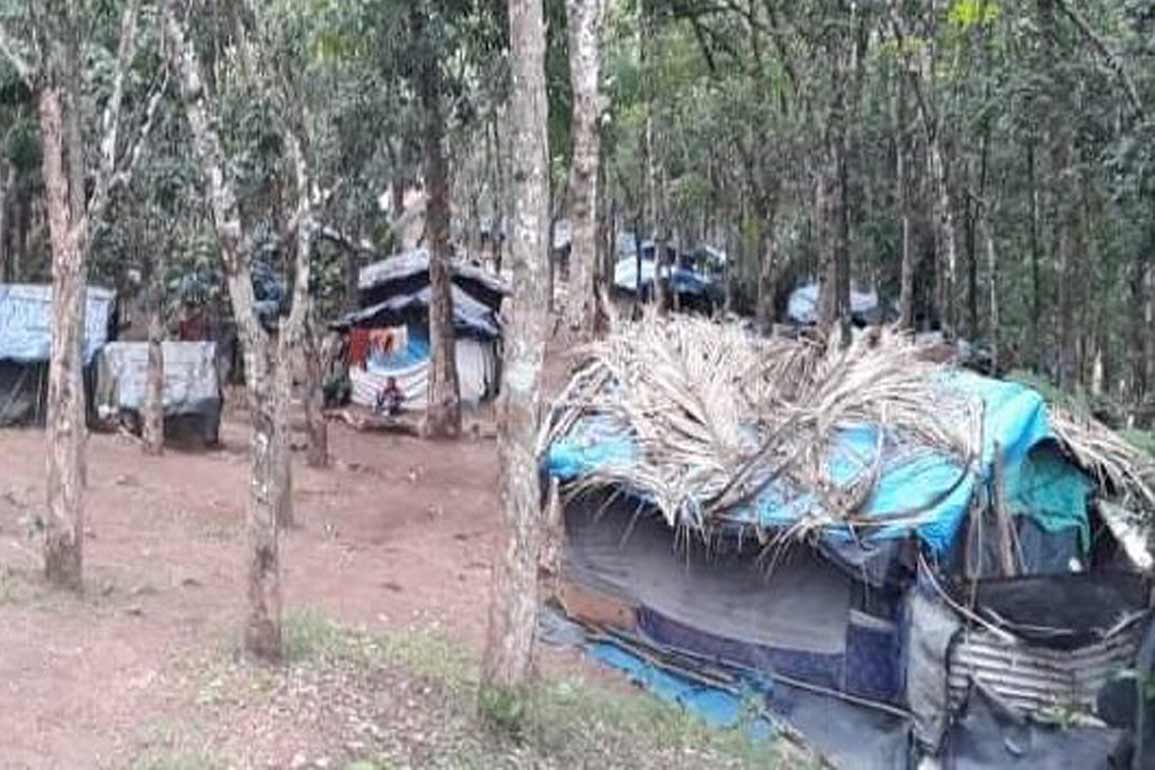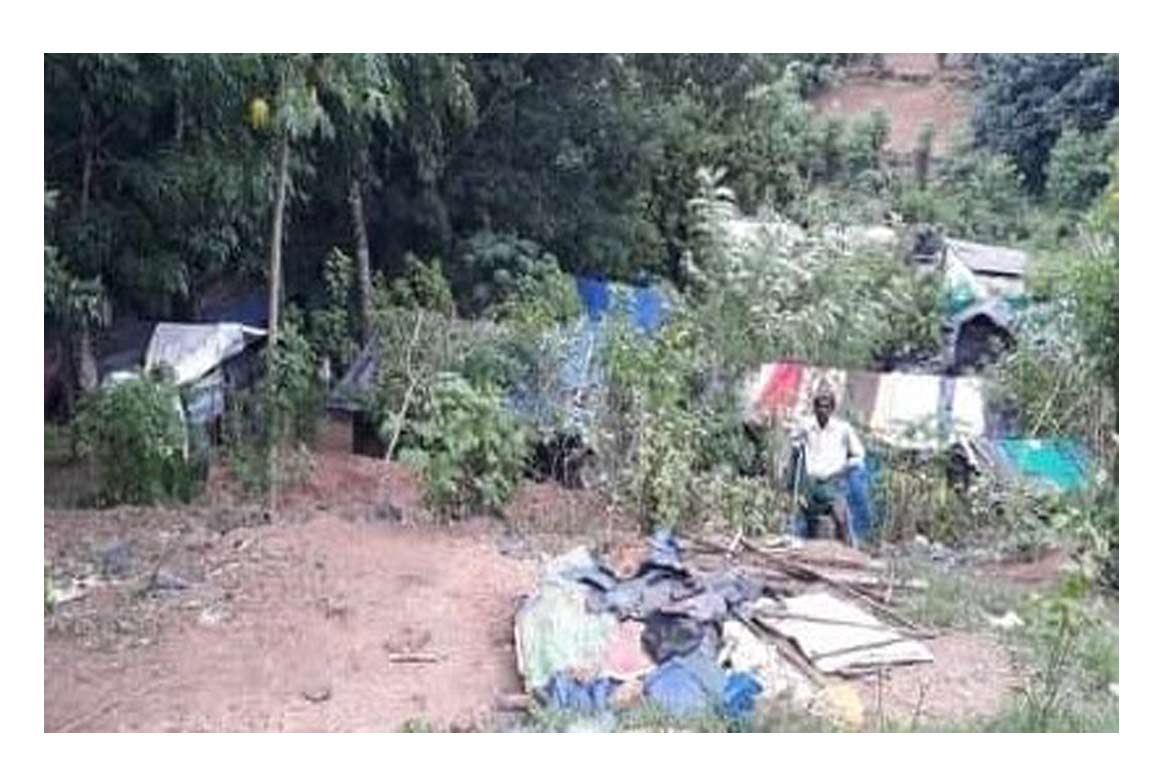For more than 200 Dalit families, who have been waging a land-struggle in Arippa, on the western border of Thiruvananthapuram district, the lockdown necessitated by the coronavirus pandemic has forced them into extreme hardship and poverty. These families have been occupying a local landlord’s surplus land, which was attached by the state government since 2012.
The living conditions of these landless families from the lower strata of Kerala society are deplorable for the occupied land lacks basic facilities. These families have been neglected by both the state government and civil society, who regularly boast of rapid strides in uplift of the poor and needy during the lockdown.
Sandwiched between the eastern border of Thiruvananthapuram and Kollam districts, Arippa and its landless dalits are leading a miserable existence ever since the lockdown due to poverty. Of the 200 families, 33 live on the surplus land which falls under Chithara Grama Panchayat of Thiruvananthapuram district and there are two settlements in the Kulathoopuzha grama panchayat of the Kollam district with the larger one having 132 families and the smaller one having 33 families.
Though the state government has relaxed the lockdown according to zones, since the first week of May, these Dalit families are finding it challenging to survive. Except for two hundred food kits supplied by Kudumbasree Poverty Eradication Mission during the last week of April, no official help has reached them so far.
As most of the families of the agitators lack ration cards and other official documents, they have no access to state’s famed public distribution system. The huts lack electricity connection so the dalits urgently require kerosene too. Poverty deaths were averted recently when a group of Jesuit priests and former students of a nearby college distributed essential provisions among them.
According to V Udayan, a landless dalit, occupying the surplus land, the coronavirus pandemic has made the protests directionless. Tribal leader Sreeraman Koyyon, the brain behind the agitation, is stuck in his native Kannur due to the suspension of public transport system during the lockdown.
Lack of ration cards, water connection and electricity are the key issues that are making their lives miserable during this lockdown. As landless poor, most of them have no address proof to apply for ration cards. Some others have ration cards but they are now being used by members of the extended families elsewhere. According to A Ramesan, an agitator, only a handful of families with ration cards are getting half a litre of kerosene per month.” As kerosene is not available in the open market, we are lighting lamps in the huts using diesel. Use of diesel in kerosene lamps is risky. We also have to pay heavy price,” he said. As there is no access for safe water or sanitation, the conditions are unhygenic.
As Kerala has started getting frequent summer rains, rainwater has started seeping into their thatched huts. Snakes from nearby forests also frequent the three settlements making their lives more miserable.
When the land struggle began in 2012, there were more than 500 landless families at the forefront of it. They had occupied 51.7 acres of surplus land located close to the Kulathupuzha forest region saying they need the land for housing and cultivation. However, adverse conditions and the government’s continuing neglect to their demands have forced majority of the agitators to withdraw and return to their respective natives.
When Sreeraman Koyyon took the initiative for the agitation, the landless dalits had rallied behind him saying they were not happy with the government’s offer of three-cent plots to construct small houses. They declared that their motto was ‘colony vittu krishiboomiyilekku’ (from colony to farmland).
In May 2013, the agitation created state wide headlines when the local residents had declared a social boycott on the agitators. Though the boycott was dropped later due to government interventions, the dalits who occupy the Arippa lands are still remaining denied of daily wage jobs. Local shops are refusing to sell provisions to them. The agitators have suffered yet another setback when the district administration had enforced a ban on their paddy cultivation inside the forests, tagging it as ‘subversive activity’. Now, the land around the settlements is covered with weeds. Women had been making brooms at home by collecting raw materials from the forest but under lockdown they are unable to sell them.
According to the forest department sources, the disputed land at Arippa was part of 90 acres of forest land leased out to business baron Thangal Kunju Musaliar long back by the then princely state of Travancore. When the lease expired in 2001, the government took back the land. The government had distributed twenty-one out of the 91 acres to a few landless people of the Chengara-land struggle. They got the title deeds in 2009. The government had set aside another 13 acres to establish a Model Residential School for dalits and tribal students, which incidentally is named after Dr B R Ambedkar. The rest of the land measuring around 55.4 acres of land is now under dispute as the land struggle protestors demand that it be distributed among landless Dalit families while the government has plans to establish an international university campus, biological park and dental college.




